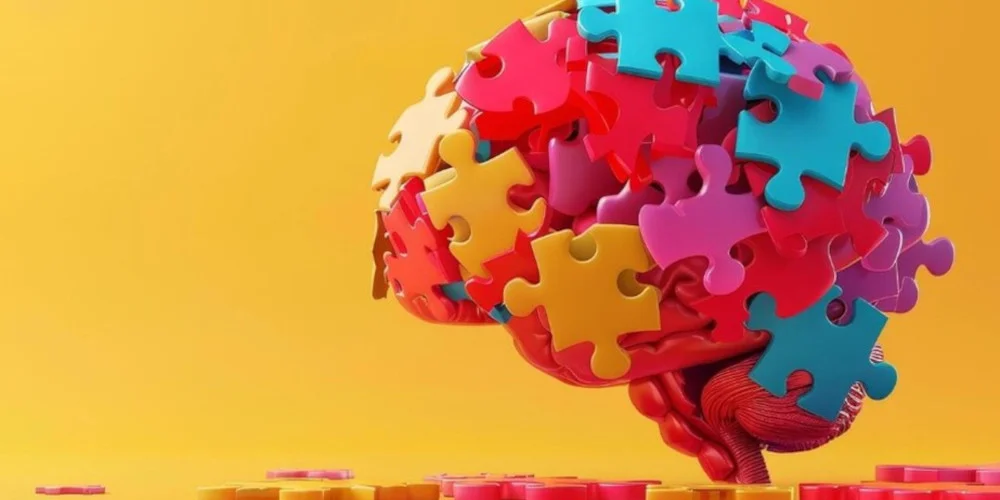Recovery is full of language about hope and rebirth, new beginnings, second chances, fresh starts. What people don’t talk about is the funeral that comes first. The death of the person you were. The loss of an identity built on survival. The grief that follows when you realise the old version of you, the one who laughed differently, dressed differently, coped differently, isn’t coming back.
This grief isn’t romantic or symbolic. It’s raw, confusing, and deeply personal. Because while everyone celebrates your “new life,” you’re quietly mourning the old one. The part of you that, despite all its chaos, kept you alive.
The Death Inside the Recovery
Addiction destroys lives, but it also shapes them. It becomes a way of knowing the world, every decision, every friendship, every routine tied to it. So when you remove the substance or the behaviour, you don’t just lose the addiction, you lose a lifestyle, a community, a version of yourself that you’ve inhabited for years.
That’s why early recovery can feel eerily like grief. The symptoms are identical, denial, anger, bargaining, depression, acceptance. You’re saying goodbye to an identity that, for better or worse, gave you something predictable. The rituals, the chaos, the stories, they made sense in their own way. Now there’s silence where noise used to be. And silence, to an addict, can sound like death.
The Myth of Reinvention
Society loves redemption stories, the before-and-after photos, the triumphant comeback narratives. But the truth is, reinvention isn’t clean. It’s messy, uneven, full of contradictions. You can’t simply swap the old you for a new one like changing clothes. You have to deconstruct the version of yourself that survived, one layer at a time.
The old you wasn’t evil. It was wounded, scared, resourceful. It found ways to manage unbearable emotions. It built walls where love should have been. It learned to live in the wreckage and call it home. Grieving that version of yourself doesn’t mean you want to go back, it means you’re finally acknowledging what it cost to get here.
The Emotional Hangover
Once the chaos stops, emotions flood in. Regret, shame, nostalgia, loneliness, the ghosts of your former life come knocking. You start remembering nights that were both thrilling and tragic, friends who disappeared, moments that felt like freedom but were really escape.
That nostalgia can be dangerous. The addicted brain remembers the highs more vividly than the consequences. It romanticises what was killing you. That’s why grief work in recovery is so delicate, you’re mourning something that almost destroyed you. You can miss it without wanting it back.
It’s the same way a person might miss an abusive partner, not the pain, but the familiarity. Addiction, in its twisted way, was comfort. Predictable pain is easier to manage than uncertain peace.
The Loneliness of Change
Recovery can be isolating. The people who once understood you no longer do. The people who cheer for you don’t fully get it. You stand in between worlds, no longer who you were, not yet who you’re becoming. It’s a kind of social purgatory.
Many people relapse not because they want to use, but because they want to belong. They miss the camaraderie of shared destruction, the belonging that came from being broken in familiar ways. Grief isn’t just for substances, it’s for the entire ecosystem of people, places, and patterns that addiction built.
The hardest part of grieving the old you is realising how many relationships were tied to your pain. When you heal, you lose people who were drawn to your dysfunction. You begin to outgrow dynamics that once defined you. Healing becomes lonely before it becomes liberating.
The Self You Used to Protect
Addiction, for many, begins as protection. A way to shield yourself from unbearable truths. So when recovery strips away your armour, you meet the part of yourself you were hiding all along. That’s the grief most people can’t name, the mourning of innocence lost, of safety that never really existed.
You might remember the first time you used, drank, gambled, or binged, that small moment that spiraled into years. But before that moment, there was another, the first time you felt like you weren’t enough. That’s where the real loss happened.
Grieving the person you were means forgiving that version of yourself for doing what they had to do to survive. For finding comfort in destruction. For not knowing better. Forgiveness doesn’t excuse the harm caused, it acknowledges the pain behind it.
The Mirror Moment
In therapy and recovery, there’s often a point where you look in the mirror and don’t recognise yourself, not physically, but emotionally. You see a face that looks calmer, clearer, older, but you miss the fire, the rebellion, the recklessness. You miss the “edge.”
That’s the illusion of identity grief. You’re not missing the chaos, you’re missing the adrenaline. You’re missing the drama that made you feel alive. Addiction is a master of emotional intensity. Recovery, by comparison, feels slow and flat. Learning to appreciate peace takes time.
The mirror moment is sacred, though. It’s when you start seeing yourself without distortion, not as a victim or a villain, but as a human being. Not perfect. Not pure. Just real.
The Slow Return of Self
Over time, something shifts. The grief softens. You start building a new relationship with yourself, one not based on avoidance or performance, but on honesty. You learn what you actually like, not what numbs you. You discover that calm doesn’t mean boring, it means stable.
This new self doesn’t arrive all at once. It sneaks up quietly, in laughter that feels genuine, in mornings that aren’t heavy, in forgiveness that doesn’t feel forced. One day, you realise the old you isn’t haunting you anymore. They’re part of your story, not your shadow.
That’s the moment the grief turns into gratitude. You don’t hate the person you were. You thank them for surviving long enough to give you the chance to become someone else.
The Body Remembers
Grief in recovery isn’t just emotional, it’s physical. The body carries memory. The way your hands shake when you’re anxious. The way your stomach drops when you feel joy, as if it’s something dangerous. The old body reflexes take time to unlearn.
That’s why healing requires more than words. It’s movement, breath, rest. It’s teaching your body that safety doesn’t mean vigilance. That pleasure doesn’t mean danger. That stillness isn’t punishment.
Every time you choose rest over chaos, you’re rewiring your nervous system. You’re teaching your body that it’s allowed to exist without adrenaline. That’s not just recovery, that’s rebirth.
The Identity Beyond Survival
When you build an identity around surviving, you forget how to live. The addict identity, even after sobriety, can be seductive. It gives you a story, a label, a role. But healing asks for more than survival. It asks for expansion.
You don’t have to be “the addict in recovery” forever. You can be the artist, the parent, the friend, the thinker. You can be someone who experienced addiction without being defined by it. Grieving the old you means releasing the need to keep wearing your wounds as proof of worth.
Your story doesn’t end when the addiction does. It just changes chapters.
Love as the Final Stage of Grief
The final stage of grief isn’t acceptance, it’s love. Love for the parts of you that fell apart. Love for the mistakes that taught you boundaries. Love for the body that carried you through hell and still wakes up every morning trying.
Recovery is not about erasing your past. It’s about integrating it. It’s saying, “That was me, and I still deserve peace.” The old you doesn’t need to be hated or forgotten. They need to be honoured. Because without them, there would be no you to grieve, and no you to heal.
The Quiet Resurrection
In the beginning, recovery feels like loss. Over time, it starts to feel like resurrection. Not the dramatic kind, but the quiet one, the slow reawakening of a person who stopped existing long before they got sober.
You start to see beauty again, in ordinary things, in small connections, in mornings that don’t demand penance. You start to feel whole, not because you’ve replaced the old you, but because you’ve welcomed every version of yourself home.
Grieving the person you were isn’t a setback. It’s a rite of passage. It’s the bridge between survival and freedom. And once you cross it, you realise that the person you lost was never your enemy, they were the one who fought hard enough to make sure you’d still be here to start again.















